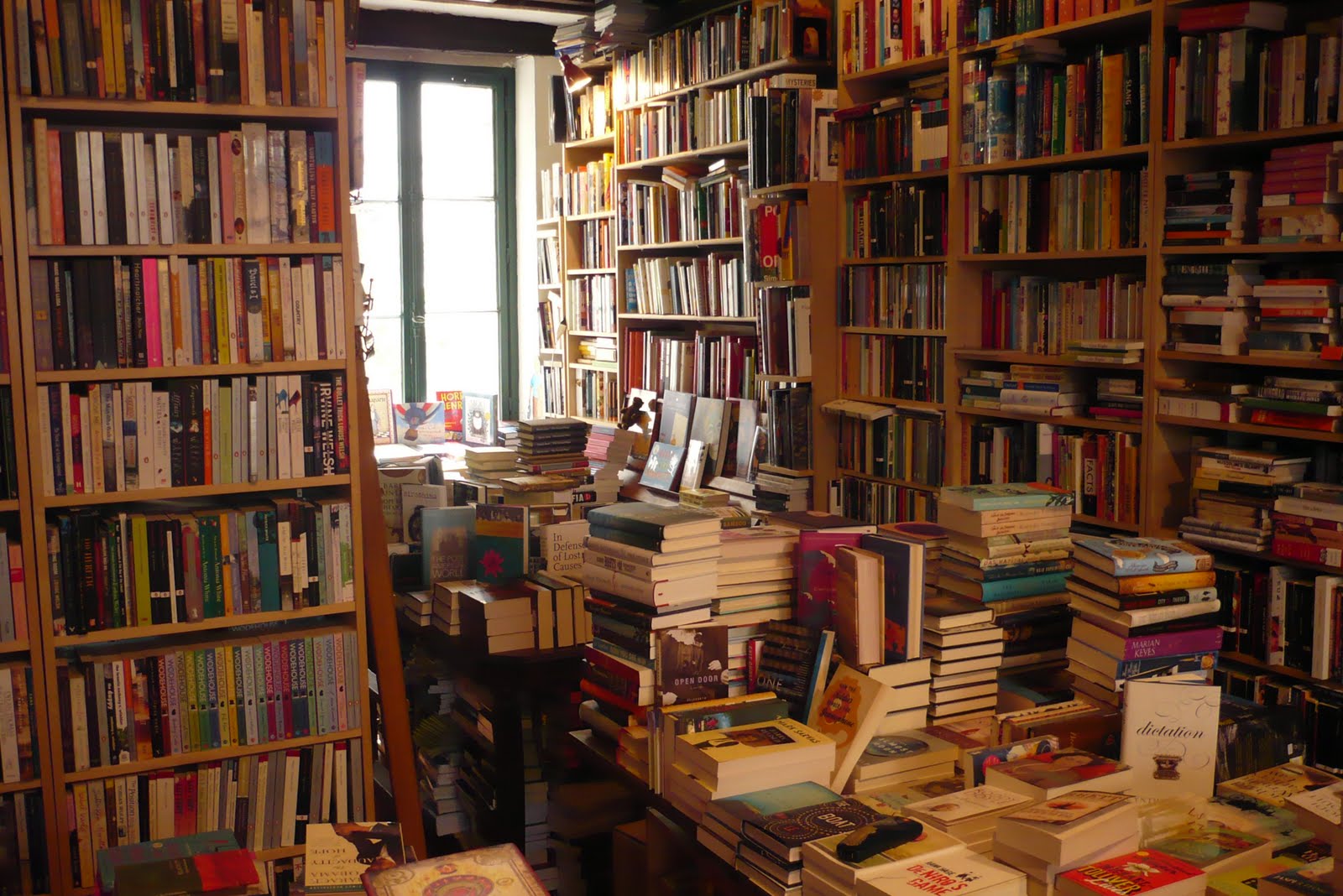By Lisanne Ophoff
Staff Writer
When I was 7, my family and I moved to Zwolle. It was on a Friday, so on Saturday morning I made my mom take me to get a library card. I had my priorities straight. I still remember my massive disappointment when I found out that in this library I was only allowed to take 5 books home, instead of the 7 I was used to. I also remember losing my keys there on a regular basis, leaving them on the floor where I had been sitting with a pile of books. When I’d walk in again a few minutes later, the library guy would already be waiting for me with my keys. Somehow, a very large percentage of my childhood memories ended up being about books and I can still spend hours just walking around in de Drukkery or Waanders, its equivalent in Zwolle.
By now, you can probably imagine the intense scare I experienced when I read in the newspaper that bookstores would stop existing (nrc next, 28/01). Apparently people no longer read, especially our generation. And most of what does still gets sold, is ordered online. The amount of time we spend reading books has decreased by 44% a week between 1975 and 2005 (nrc next, 03/02), and if this trend continues there will be no more books by the time I’m an old lady. As Michael McIntyre jokes, in the future people will use eReaders for the little reading they do and laugh at our habits of decorating our houses with the books we read. And according to many authors, publishers and other “bookpeople”, he might be right. This panic about bookstores started when a huge Dutch store chain, Polare, had to close. The chain came into existence only months ago, when the bankrupt chains Selexyz and the failing de Slegte were combined by a new owner. When I typed in Polare as a search term on the online version of NRC Next, I found 39 articles (which is more than I could find about the situation in Ukraine – speaking of #firstworldproblems) – and that’s just in the first week of this semester.
Online warehouses, the biggest of which is Amazon.com, seem to be taking over the market. They offer an insane amount of products, their prices are low, and – most importantly – you don’t have to leave your couch while ordering. It’s great! The downside however, is how they are able to afford this. Amazon lists their employees as working in logistics rather than retail, so that they don’t have to be paid as much. Especially in Germany there have been a lot of strikes because of this, but it hardly makes any difference. Also, online shopping also makes you lose an amazing experience. (If you don’t like bookstores, take a friend and check out the self-help section. Then spend an hour laughing at books that tell you how to dump your boyfriend, how to do mindfulness with your 6-year-old kids, or how to make people like you. Trust me, it’s a great way to make you feel better about yourself!) For these reasons, and the simple fact that leaving your couch is actually good for you, we should keep going to actual bookstores.
A very present opinion in the whole discussion is that books are good and we should get the younger generations to read. Contrary to what everybody over 30 seems to think, school is not the way to do this. I’ve heard too many people say ‘I used to love reading, until school made it obligatory’. Forcing people to read literature is not the way to go. Especially when it’s fifty-years old Dutch literature, most of which in my opinion ranks just above ‘Fifty Shades’ fan-fiction – although I have to admit I may not have given Fifty Shades a fair chance. Even if you do like the genre, just imagine what being forced to not only read The Safe House by W.F. Hermans, but also analyse it, would do for the average 14-year-old’s love of books.
People read less and order more online, but there’s still hardly a reason to say that booklovers are a dying breed. As long as eReaders don’t have the smell of books – preferably one that matches with the age and paper-type of a print book, I refuse to even consider buying one. The market might become smaller, but it’s not that easy to replace a format that’s been around for thousands of years. Even LP’s are still being sold. There are simply too many books already out there for it to just disappear – we have been decorating our houses with them for thousands of years – , as well as bookstores out there doing well enough to want to take over one or two stores from Polare and I’m surprised by the large amount of specifically Christian bookstores on a regular basis. There is an incredibly large market for books, which makes the chances of it disappearing completely rather small. However, this does not change that bookstores are amazing, and I think we should spend a lot more time and money in them. It would be a shame if they would disappear, but I don’t believe that there is a good reason to be worried just yet: it is only natural that the use of an old medium decreases when a new one is introduced, but in most cases, this development stops at some point. I still have some hope that the cute little used-bookstore will last until after I’ve graduated, and that bookstores in general will stick around after I’ve died – I don’t really care what happens after.
Lisanne Ophoff, Class of 2016, is a Cognitive Science and Biomedical Science major from Zwolle, The Netherlands.

